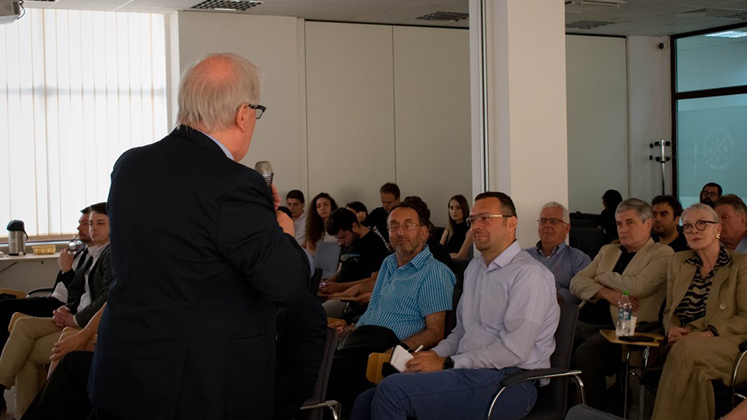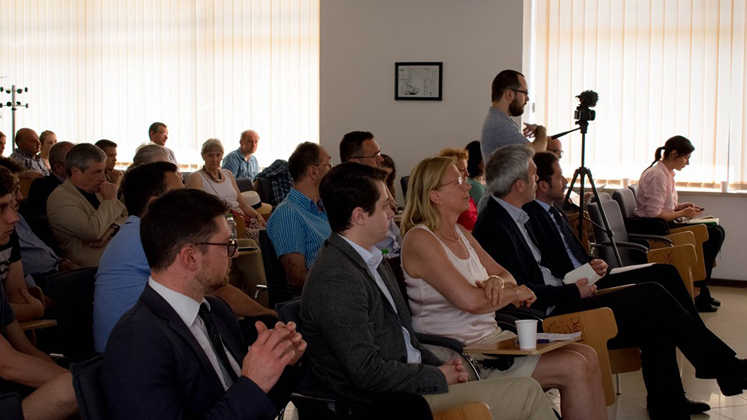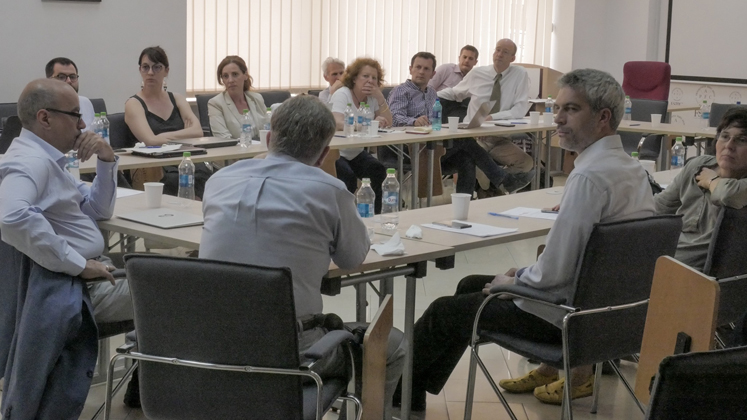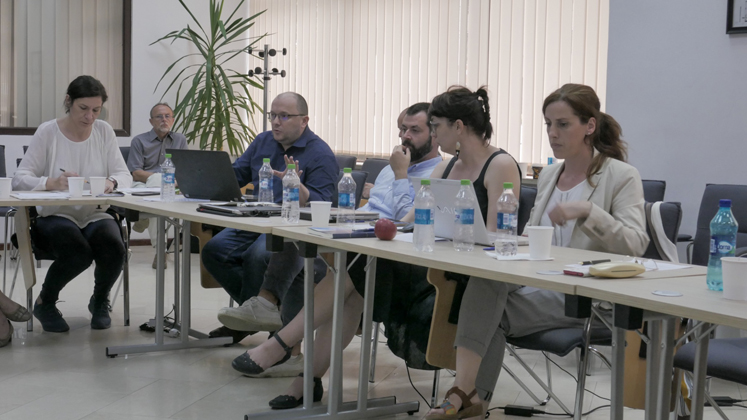The first annual workshop hosted by the Central and South-East Europe Programme desk was held on 17 and 18 June 2019, with the title ‘Europe 30 Years After the Fall of the Berlin Wall’. It was hosted at the Political Science Faculty of Babes-Bolyai University in Cluj-Napoca, Romania. The objectives of this venture between LSE IDEAS and Babes-Bolyai University are: to foster academic cooperation, to help with preserving the freedom and autonomy of universities and institutes, and to connect regional knowledge with global trends.
These events allow us to share the methods and approaches specific to each institution. By exchanging research and findings, we can construct a better view of events and ideas that have shaped the European continent over the last century, while focusing specifically on the experience of the Central and South-East Europe region. These activities aim to harmonise the research focused on this regional field and are invaluable in pursuing our common interests and goals stated above.
Professor Michael Cox, Director of LSE IDEAS, opened the workshop with a lecture on ‘The Post Cold War World’. The first day of the workshop had a variety of guests, from student body, academia, members of the business community and civil society. The second day was dedicated to a workshop with panels focusing on the major changes that have taken place in Central and South-Eastern Europe in the last three decades.


The panelists drew their perspectives on issues such as the outcome of transition from a socialist system, in terms of security, economy and society. A second panel was focused on the role of education in generating or supporting change in the region. Values based approaches looked at the differences between Eastern Europe and Western Europe and the capacities and the limitations of the two to be at the core of a united European continent. The panels were moderated by Professor Christopher Alden, Professor Jeffrey Sommers, and CSEEP Manager Vlad Zigarov.


Below you can read an overview of the contributions to the workshop. The final version of the report following the workshop will be available on our website and in print later in the year.
Michael Cox: Whatever Happened to Socialism after the Fall of the Wall?
Jeffrey Sommers, Cosmin Marian: The Collapsing Center in the World’s Liberal Center
Cornel Ban: Dependent Finance in Central Eastern Europe – between Repression and Close Embrace
Aaron McKeil: The Trouble with International Order 30 years after the Cold War
Benjamin Martill: The Problem of Western Decline - beyond Left and Right
Daniel Pop: Divergent Steady States in the Quality, Equity and Efficiency of School Systems in CEE Countries
Gabriel Bădescu: Education, Social Media and Citizenship among South-Eastern European Youth
Christopher Coker: Integrating Western and Eastern Europe: the Cultural Balance Sheet
Janne Haaland Matlary: Christian Leitkultur: Nation and Family between East and West
Bogdan Radu, Daniela Angi, Petruta Teampău: Religion, Gender and Liberal values in Central and Eastern Europe
Remus Anghel, Ina Mierina: From Emigration to Immigration? CEE Countries in Post-crisis Context